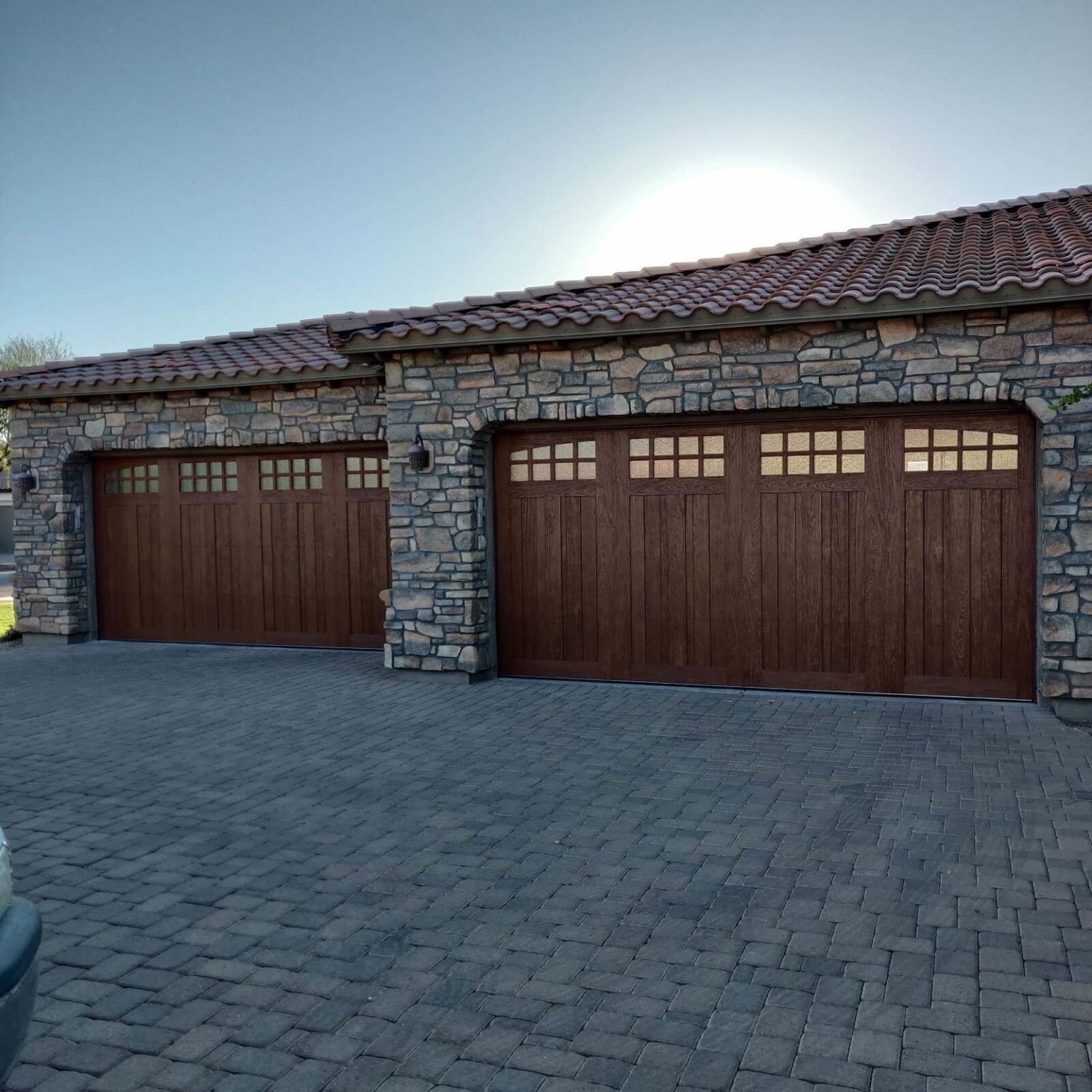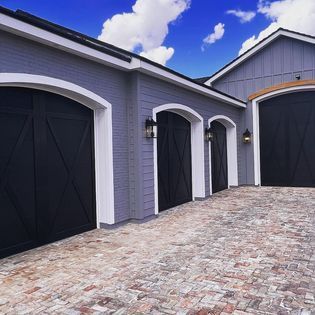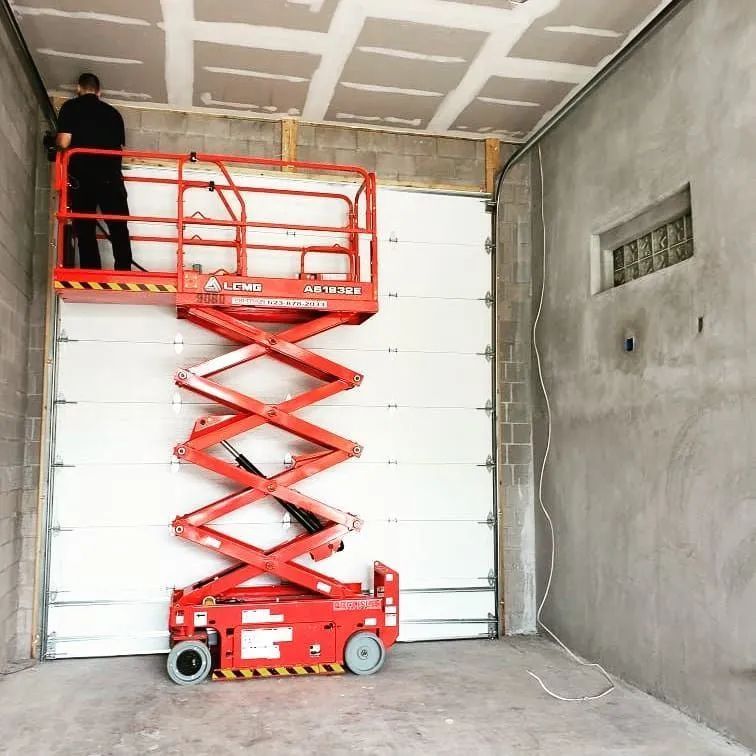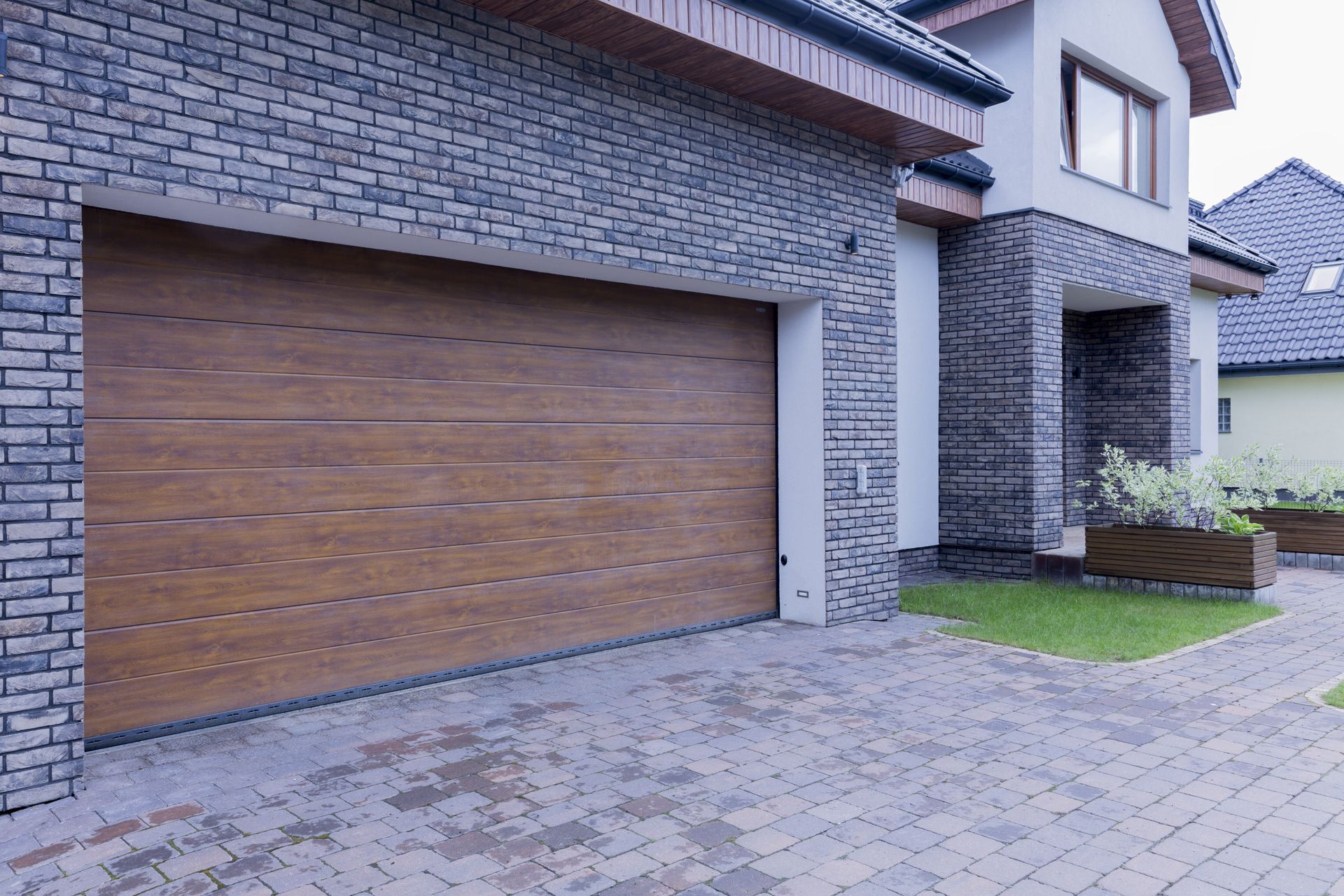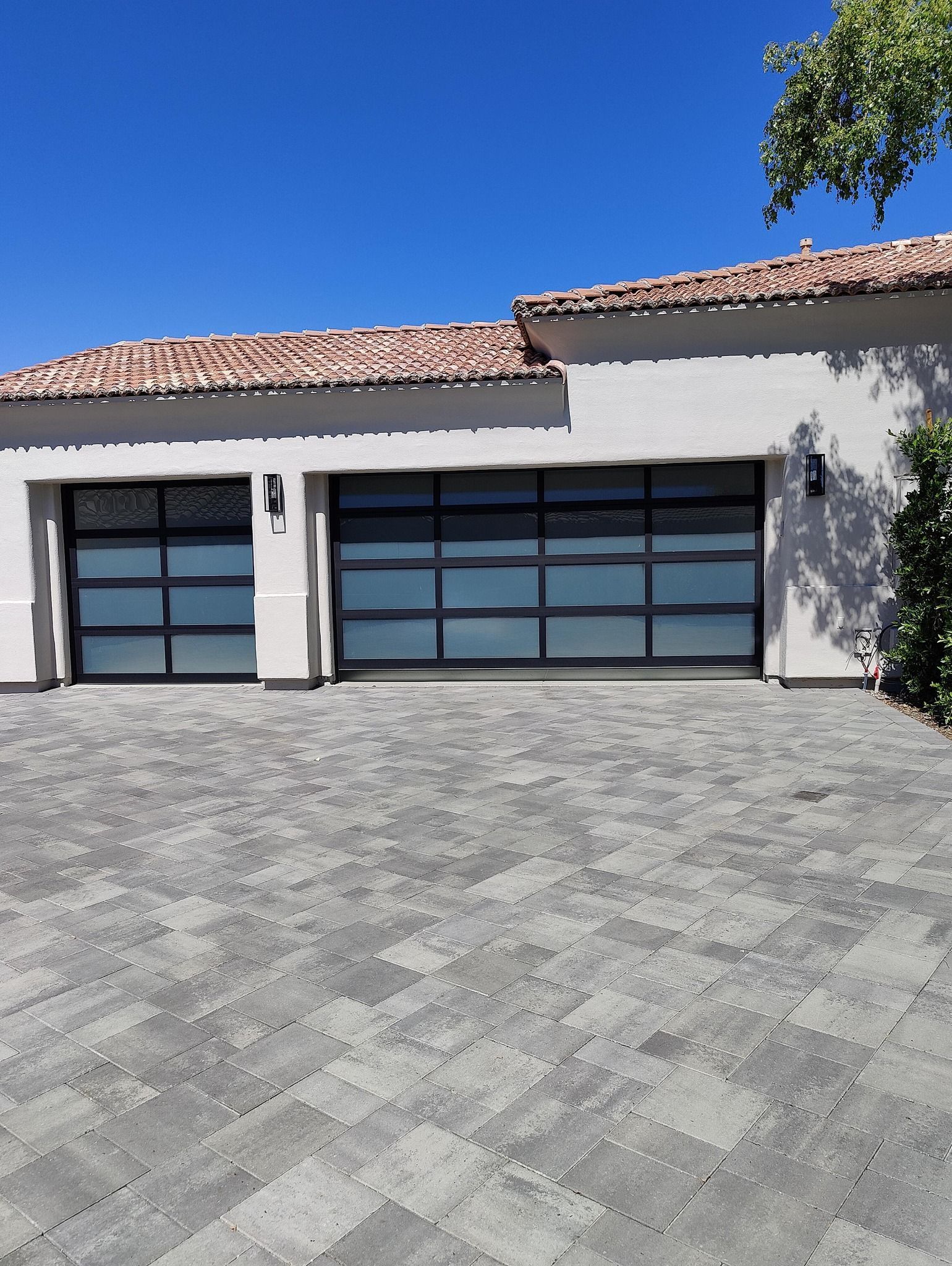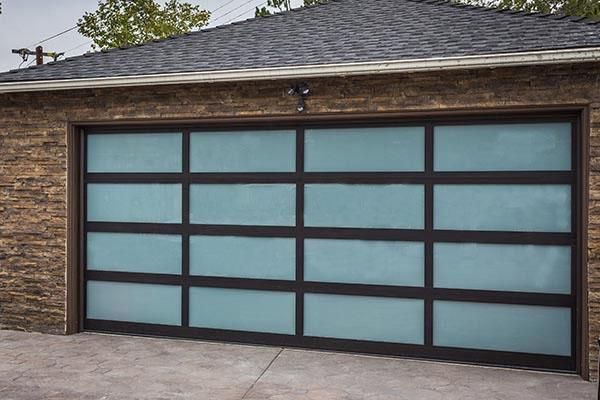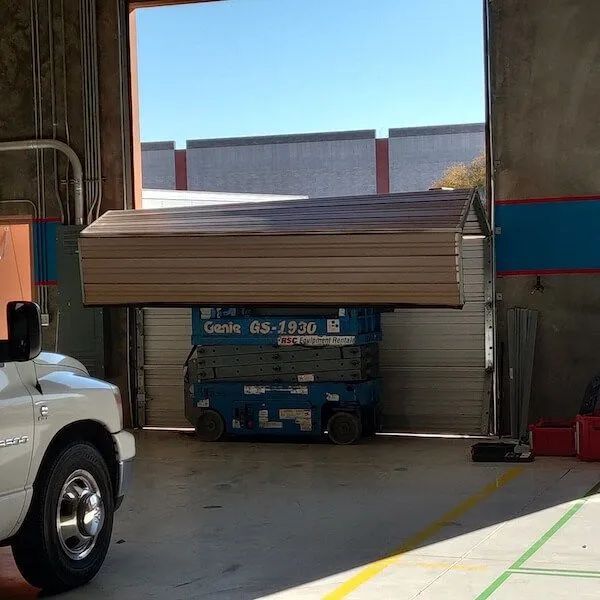Top 7 Signs Your Garage Door Needs Immediate Repair in Arizona's Climate
Arizona's extreme desert climate puts your garage door through intense daily stress that most homeowners don't fully understand. Temperatures reaching 115°F, monsoon moisture, and year-round UV exposure create unique challenges that can turn minor issues into major breakdowns overnight. Recognizing these seven critical warning signs can save you from emergency repairs, costly replacements, and safety risks that come with a failing garage door system.
For homeowners in Gilbert and the East Valley, garage doors endure conditions that quickly break down systems built for milder climates. At Grease Monkey Garage Door, we understand how extreme heat expansion, sudden monsoon temperature drops, and constant dust infiltration speed up wear on springs, cables, and electronic components faster than almost anywhere else in the country. That’s why we provide trusted
residential garage door repair tailored to Arizona’s demanding environment.
Key Takeaways:
- Extreme Arizona heat accelerates garage door failure - Phoenix recorded 70 days above 110°F in 2024, causing rapid component wear.
- Strange noises indicate immediate danger - Grinding or scraping sounds require professional garage door repair in Gilbert, AZ, within 24 hours.
- Light gaps around doors waste energy - Seal failure lets 115°F air infiltrate your home, dramatically increasing cooling costs.
- Garage door replacement offers 194% ROI - making it the #1 home improvement investment for Arizona homeowners.
Professional service prevents safety hazards - High-tension springs and heavy panels require experienced garage door service in Gilbert to avoid injury.
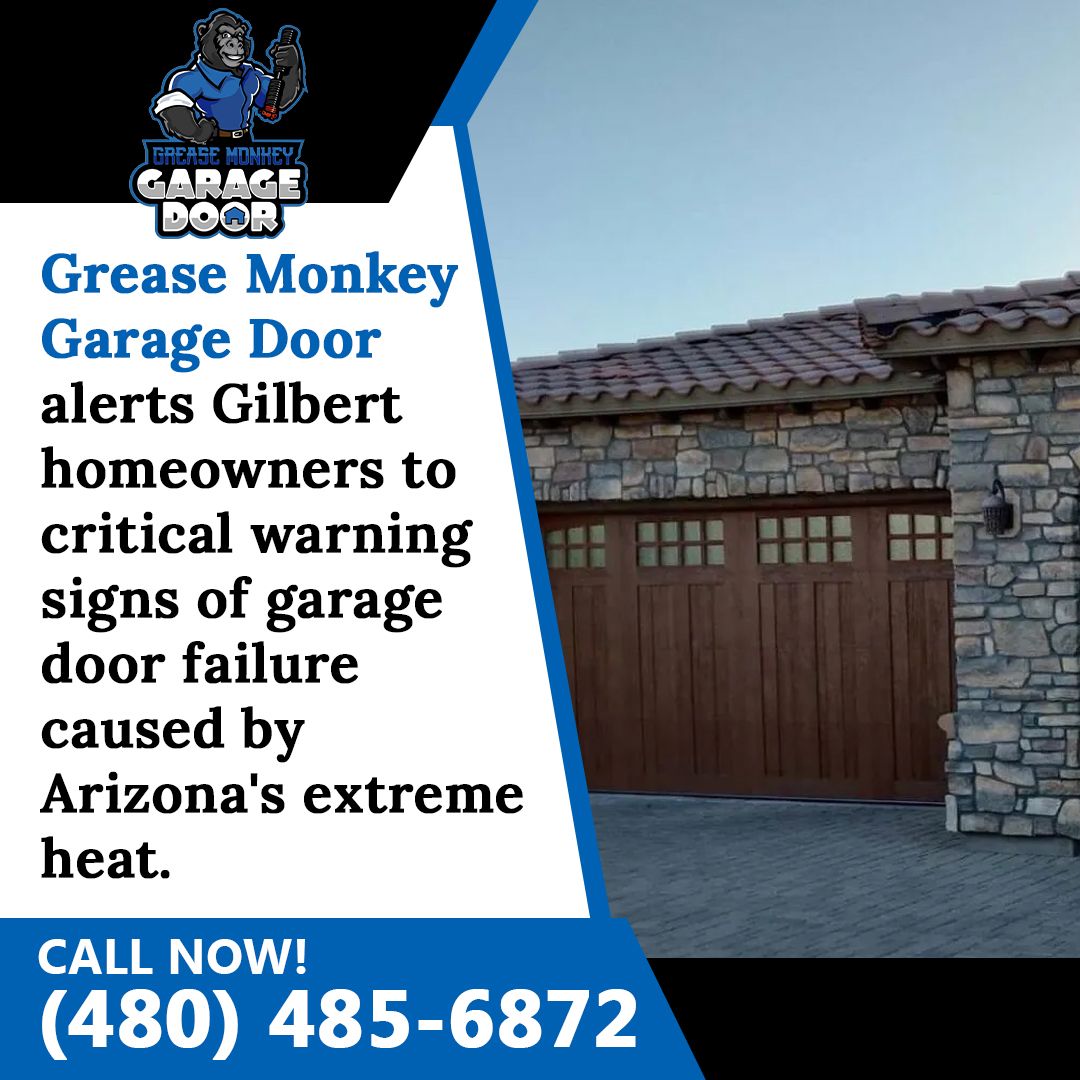
What Are the Most Common Signs My Garage Door Needs Repair in Arizona?
Your garage door shows distress through specific symptoms that Arizona homeowners must never ignore. The most dangerous warning signs include grinding or scraping noises during operation, visible gaps around the door perimeter, uneven movement patterns, and doors that struggle to stay closed in windy conditions.
These symptoms often arise suddenly due to Arizona's climate, which does not permit gradual deterioration. Instead, components can fail quickly once they reach their breaking point from thermal stress and environmental damage. Grease Monkey Garage Door offers reliable residential garage door repairs to restore safety and dependability when these problems occur.
1. Strange Grinding, Scraping, or Metal-on-Metal Noises
Unusual sounds from your garage door system signal immediate danger and require professional garage door repair in Gilbert, AZ, within 24 hours. Arizona's extreme heat causes metal components to expand beyond normal tolerances, creating friction that produces grinding, scraping, or squealing sounds during operation.
These noises typically indicate that rollers have worn down from dust accumulation, tracks have warped from heat expansion, or springs are beginning to fail under thermal stress. Desert dust infiltrates every moving part, acting like sandpaper that grinds away protective coatings and smooth surfaces.
Never ignore metallic grinding sounds:
they often precede complete system failure that can leave your car trapped or create safety hazards for family members. The intense heat in garages can reach 130°F during the summer months, causing lubricants to break down and protective coatings to fail much faster than in moderate climates.
In Arizona's climate, what starts as minor noise often escalates to complete component failure within weeks rather than months. Professional technicians can identify whether the issue requires simple lubrication, component replacement, or more extensive
garage door service in Gilbert.
2. Visible Light Gaps or Air Leaks Around Door Perimeter
Light gaps around your garage door perimeter indicate seal failure that lets extreme Arizona heat infiltrate your garage and home. When temperatures outside reach 115°F, even small gaps allow superheated air to enter, forcing your air conditioning system to work overtime and increasing energy costs significantly.
Arizona's intense UV radiation breaks down rubber weather seals faster than anywhere else in the United States. The constant expansion and contraction from daily temperature swings that can vary 40-50 degrees cause seals to crack, shrink, and lose their protective barrier properties.
Check for light visibility around all four sides of your closed garage door:
any visible light indicates compromised sealing that needs immediate attention. Bottom seals take the most abuse from heat reflection off concrete floors and are often the first to fail.
Professional garage door installation in Gilbert, AZ, includes high-grade weather sealing designed specifically for desert climates. These seals resist UV damage and maintain flexibility through extreme temperature variations that would destroy standard materials.
Damaged seals also allow dust, insects, and monsoon moisture to enter your garage, creating additional problems for stored items and potentially affecting your home's indoor air quality.
3. Door Moving Unevenly, Jerking, or Getting Stuck Halfway
Uneven movement patterns indicate track misalignment or spring tension problems that Arizona's climate accelerates dramatically. Extreme heat causes metal tracks to expand and warp. At the same time, sudden monsoon cooling can create a rapid contraction that throws the entire system out of alignment.
Jerky or stuttering movement during opening or closing cycles signals that your garage door's weight distribution has become unbalanced. This commonly occurs when one torsion spring begins failing while the other remains functional, creating an uneven lifting force that stresses the entire mechanism.
Doors that stop halfway usually indicate spring or cable problems that require immediate professional attention. Arizona's temperature extremes put extraordinary stress on high-tension springs, causing them to lose proper tension or fail without warning.
Gilbert homeowners often experience these issues during seasonal transitions when daily temperatures can swing from 85°F at sunrise to 110°F by afternoon. These thermal cycles stress every component in the garage door system simultaneously.
The dust storms common in Arizona also contribute to track contamination that interferes with smooth roller operation. Professional residential garage door repair includes thorough cleaning and realignment services that restore proper function.
4. Garage Door Takes Multiple Attempts to Open or Close
Intermittent operation problems signal sensor malfunction, opener motor stress, or electrical issues that Arizona's extreme conditions commonly cause. The intense heat in garages can cause electronic components to overheat and malfunction, while dust infiltration interferes with photo-eye sensors and remote control signals.
Arizona's low humidity levels create static electricity buildup that can interfere with electronic garage door systems. Combined with temperature extremes that stress wiring and circuit boards, these conditions lead to erratic operation patterns that worsen over time.
Sensors misalign more frequently in Arizona due to foundation settling and thermal expansion of mounting hardware. When photo-eye sensors drift out of alignment, they create safety shutoffs that prevent normal operation and require professional recalibration.
Garage door openers work harder in extreme heat conditions, causing motors to overheat and temporarily shut down for protection. This results in doors that respond inconsistently to remote commands or require multiple button presses to activate.
Professional garage door service in Gilbert includes sensor alignment, electrical connection inspection, and motor performance testing that identifies problems before they cause complete system failure.
5. Visible Warping, Cracking, or Heat Damage on Door Panels
Panel warping and cracking from Arizona's intense UV exposure and heat create security vulnerabilities and indicate material failure. Temperatures on south-facing garage doors can exceed 150°F, causing wood panels to split, vinyl to buckle, and even steel doors to show heat distortion.
Arizona's year-round intense sunlight degrades garage door finishes and protective coatings much faster than moderate climates. What appears as cosmetic damage often indicates deeper structural problems that compromise the door's integrity and insulation properties.
Look for bowing, cracking, or color changes on door panels.
These signs indicate that materials are breaking down from thermal stress and UV damage. Wood doors are particularly vulnerable, often showing splitting and warping within 3-5 years without proper maintenance.
Heat damage also affects garage door insulation, reducing energy efficiency and allowing more heat transfer into your home. Damaged panels create weak points that high winds during monsoon storms can exploit, potentially causing catastrophic failure.
Modern garage door replacement offers exceptional return on investment for Arizona homeowners. According to Remodeling magazine's 2024 Cost vs. Value report, a new garage door provides an astounding 194% return on average nationwide, making it one of the most financially sound home improvements available.
Professional garage door installation in Gilbert, AZ, uses materials specifically rated for desert climates, including UV-resistant finishes and thermally stable core materials that maintain their integrity through extreme temperature cycles.
6. Springs Showing Visible Rust, Gaps, or Extension Beyond Normal Length
Spring deterioration accelerates rapidly in Arizona's environment due to thermal cycling and dust contamination that most homeowners underestimate. Torsion springs undergo extreme stress as they expand and contract with daily temperature variations, while dust infiltration causes premature wear on all moving surfaces.
Arizona's low humidity contributes to spring problems by allowing dust to accumulate without moisture to wash it away naturally. This creates an abrasive environment that grinds away protective coatings and accelerates metal fatigue.
Inspect springs monthly for rust spots, unusual gaps between coils, or springs that appear stretched longer than normal.
These warning signs indicate that springs are approaching failure and could break suddenly, potentially causing injury or property damage.
Spring failure is one of the most dangerous garage door problems because these components store tremendous tension energy. When they break, the sudden release can cause doors to slam shut unexpectedly or become impossible to lift manually.
Professional residential garage door repair includes spring inspection and replacement with high-cycle springs designed for Arizona's demanding conditions. Quality springs can handle the thermal stress and extend service life significantly compared to standard components.
7. Garage Door Feels Extremely Heavy or Won't Stay Open Without Opener
Doors that feel heavy to lift manually indicate spring tension loss or cable problems that Arizona's climate commonly causes. A properly balanced garage door should lift easily by hand and stay open at any position without motor assistance. If yours doesn't, immediate professional inspection is required.
Arizona's extreme temperature variations cause springs to lose tension over time, gradually shifting more of the door's weight to the opener motor. This creates a cycle where overworked motors fail prematurely, leaving homeowners unable to operate their doors during power outages.
Test your garage door balance monthly by disconnecting the opener and manually lifting the door halfway. It should stay in position without assistance. Doors that fall or require excessive force to lift have spring problems that need immediate attention.
Heavy door operation also indicates potential cable problems, where steel cables begin fraying or stretching from thermal stress and increased load. Cable failure can cause doors to fall suddenly, creating serious safety hazards.
Professional garage door repair in Gilbert, AZ, includes complete balance testing and spring adjustment to restore proper operation and prevent premature opener failure.
How Does Arizona's Heat Specifically Affect Garage Door Components?
Arizona's unique climate creates specific challenges that don't exist in moderate climates. Daily temperatures reaching 115°F cause metal components to expand beyond design tolerances, while rapid cooling during monsoons creates thermal shock that accelerates component failure.
Phoenix recorded a staggering
70 days at or above 110 degrees in 2024, with the city hitting 100 consecutive days of triple-digit temperatures, shattering the previous record of 76 days set in 1993.
Garage interiors often reach 130°F during peak summer months, creating an environment that breaks down lubricants, warps tracks, and stresses electronic components beyond their normal operating parameters. The constant UV exposure also degrades all exterior materials at rates 3-4 times faster than in moderate climates.
Professional technicians know Arizona’s extreme climate puts unusual stress on garage door systems. We recommend solutions designed for heat, dust, and sudden weather shifts, not generic fixes that fail quickly in desert conditions.
When Should I Call Professional Garage Door Repair Services
Contact Grease Monkey Garage Door for professional garage door repair in Gilbert, AZ, immediately when you notice any of these seven warning signs. Waiting often turns minor repairs into major replacements or creates safety hazards that put family members at risk.
Arizona's climate doesn't allow for gradual deterioration like moderate climates. Instead, components often function normally until they reach a failure point, then break suddenly without additional warning signs.
Don't attempt DIY repairs on garage door systems. The high-tension springs and heavy panels can cause serious injury or death when handled improperly. Our professional technicians have the tools, training, and experience to safely diagnose and repair problems that Arizona conditions create.
Emergency situations include doors that won't close completely, springs that have broken, or any situation where the door appears unstable or dangerous to operate.
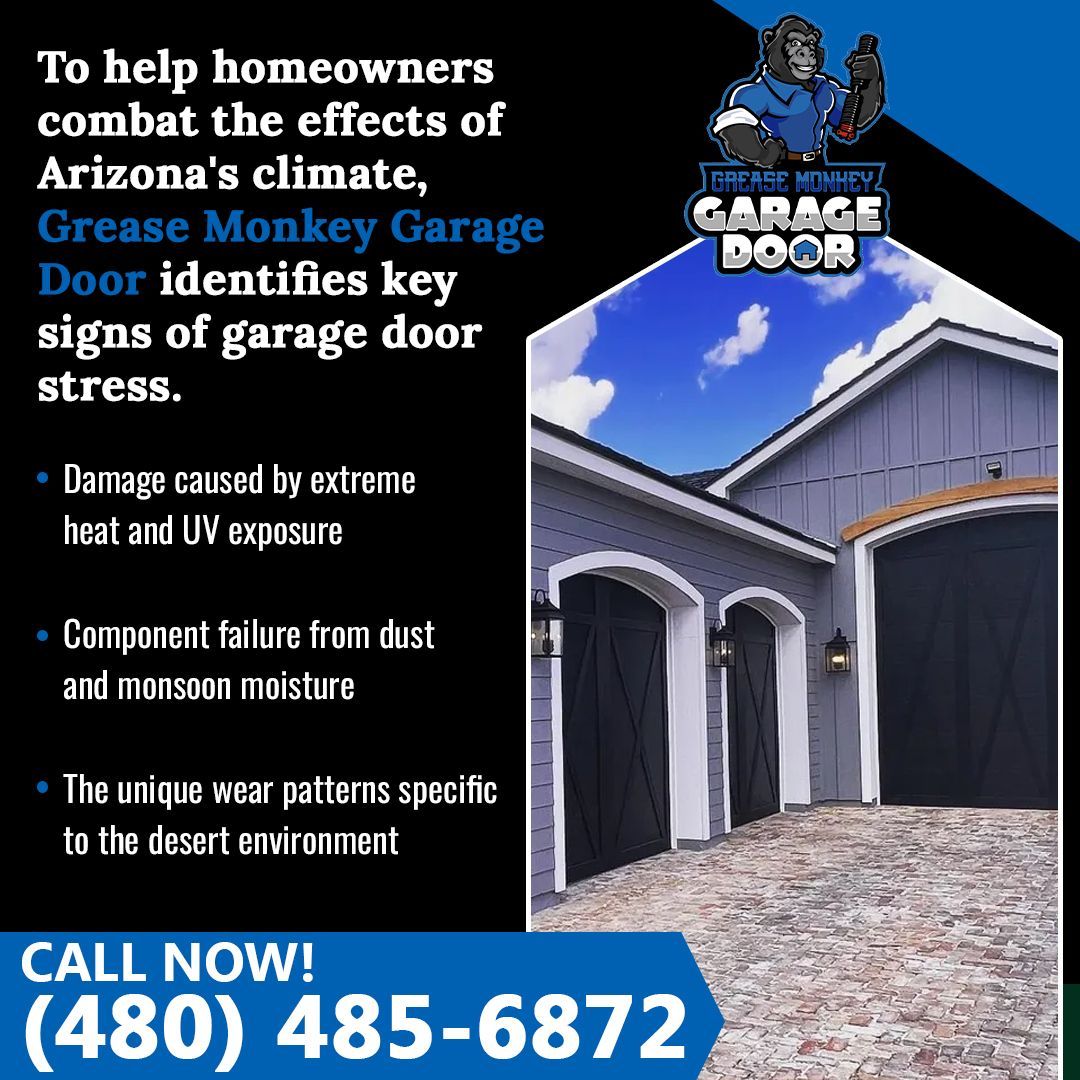
Why Trust Grease Monkey Garage Door for Arizona Climate Challenges?
At Grease Monkey Garage Door, we understand exactly how Arizona's extreme climate affects garage door systems because we live and work in these conditions daily. Our experienced technicians specialize in diagnosing and repairing the unique problems that Gilbert's desert environment creates.
With a 194% return on investment, garage door replacement ranks as the top home improvement project nationwide, making professional service and quality installation more valuable than ever for Arizona homeowners.
We use only top-quality materials designed specifically for Arizona conditions, including high-cycle springs, UV-resistant seals, and thermally stable components that maintain their integrity through extreme temperature variations. Our 24-hour emergency service means we're available when Arizona's climate causes unexpected failures.
Duffy Farris brings extensive technical knowledge and hands-on experience to every repair,
helping homeowners understand not just what needs fixing, but why Arizona's climate created the problem and how to prevent it from recurring.
Our commitment to honest service and long-lasting solutions means we recommend repairs when appropriate and replacements only when truly necessary; never pressuring customers into unnecessary work.
Need fast, reliable garage door service in Gilbert and the East Valley?
Don't wait for minor problems to become major headaches. Contact Grease Monkey Garage Door at (480) 485-6872 or email sales@gmgdr.com for quick and efficient garage door repair in Gilbert, AZ.
Our experienced technicians serve Gilbert, Chandler, Scottsdale, Mesa, and nearby areas with honest pricing, professional service, and solutions built to handle Arizona's extreme climate.
Visit our website to schedule your
garage door service or emergency repair today.
